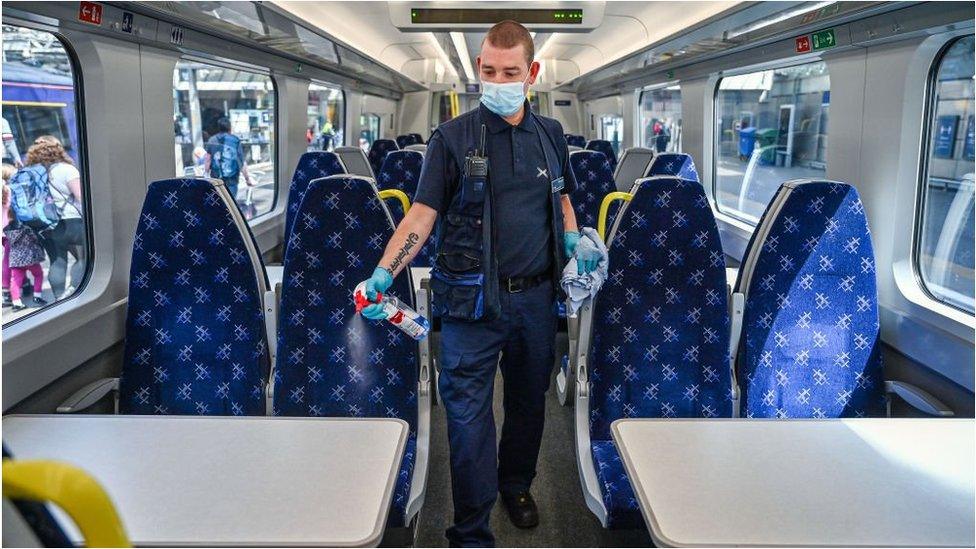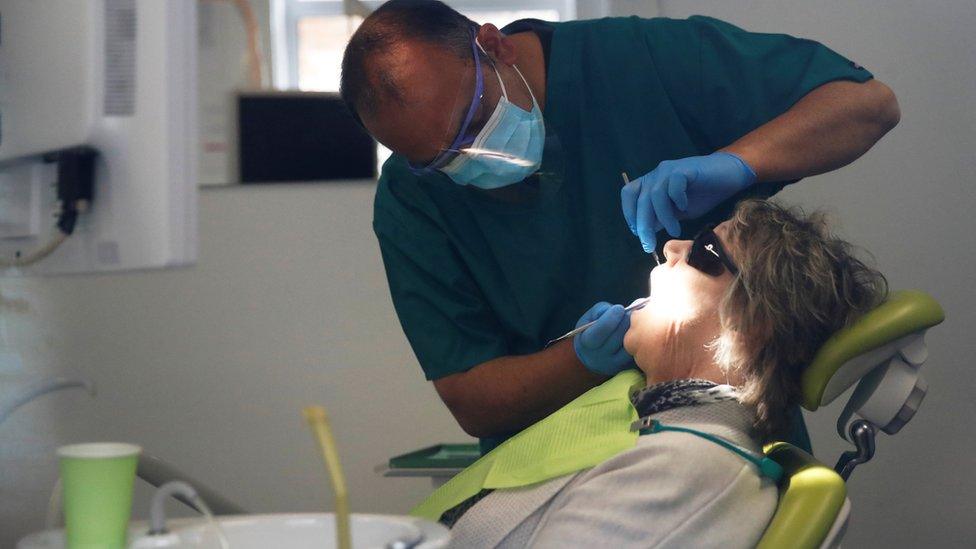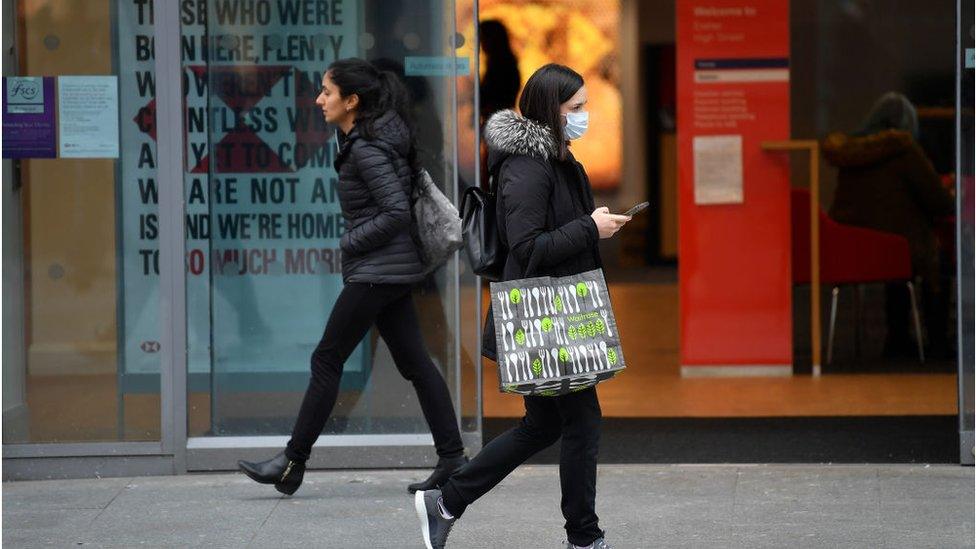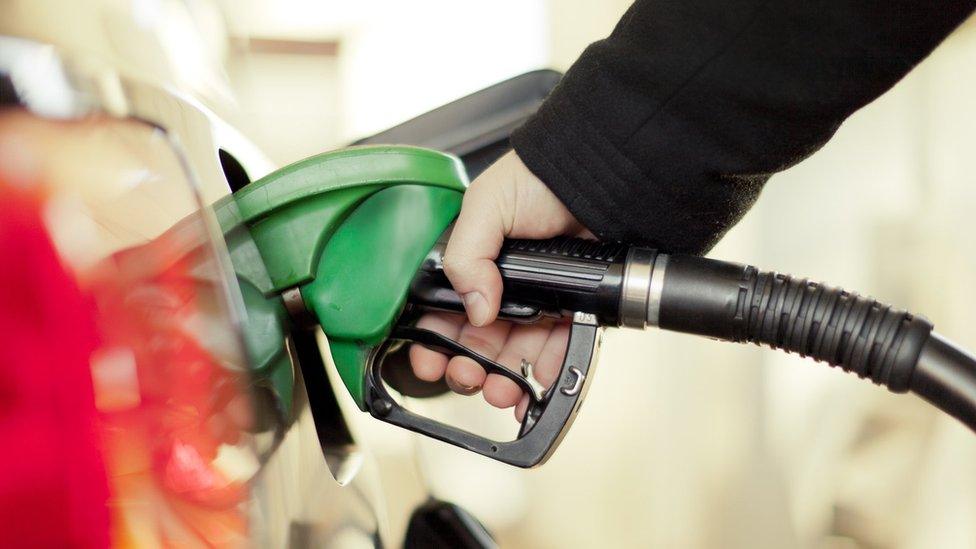Rail fares to rise 1.6% in January despite passenger slump
- Published
- comments

Many railway season ticket holders and commuters will see a 1.6% rise in fares from January despite a slump in passenger demand.
About half of rail fares are pegged to July's Retail Price Index, which defied forecasts and rose from 1.1% in June.
The government said any fare increases will be the lowest for four years, but passenger groups called for reductions.
Scotland will delay changing its fares as it considers reviewing its system to make it more affordable.
The changes will affect mainly English and Welsh commuters. In Northern Ireland, fares are set by state-owned operator Translink, and don't use RPI.
Rail Minister Chris Heaton-Harris said: "We expect any rail fare rise to be the lowest in four years come January and any increase will go straight to ensuring crucial investment in our railways.
"Taxpayers have been very generous in their support to keep trains running throughout the coronavirus pandemic, and whilst it's only fair that passengers also contribute to maintaining and improving the services they use, a lower rise will help ensure the system returns to strength."
Passenger watchdog Transport Focus chief executive Anthony Smith said a system that fits "the way we live and travel now" is needed, and not "season tickets designed for city gents in the last century".
Robert Nisbet, of the Rail Delivery Group, which represents the train operating companies, told the BBC's Today programme that the government is ultimately in charge of the price increases and that the industry would like broader reform of fares to make flexible travel easier.
The rail rise compares to 2.8% last year and is the lowest since 2015, according to the Office for National Statistics (ONS), which means a smaller price increase for travellers than last year.
But figures from the government's Office of Rail and Road, external show passenger numbers in January to March fell 11.4% compared to the prior year.
Passenger slump
Those figures only partially cover the scale of the drop in rail journeys taken, as travel restrictions only started on 16 March and lockdown on 23 March.
Figures for April to June, due out in October, are likely to be much starker.
When lockdown was announced, the government said passenger numbers had dropped by 70% since the pandemic began.
To stop those firms from going under, the government then suspended all rail franchise agreements, which govern how many trains run each hour and restrict how much the companies that run them can charge for tickets and scrapped payments to government.
Currently, the network is being financially managed by the government and the companies are receiving a flat fee.
Lost profits and franchises
While generally profitable ventures, some train operating companies have had a difficult few years. South Western Railway's operating company posted a £137m loss for the 2019 financial year, which it blamed on strikes and unreliable infrastructure.
The loss put the franchise at risk, it said.
Abellio ScotRail, which runs Scotland's services, posted a £10m loss for the 15 months to March 2019.
And Northern was stripped of its franchise in January following months of chaos when new timetables were brought in.
Using RPI to manage rail fares has faced criticism for some time. The ONS dumped the measure as a national statistic, favouring consumer price inflation (CPI), which is usually lower.
The UK Statistics Authority recommended in 2019 that the publication of the RPI should be stopped and that, in the meantime, it should use the same data sources used to calculate CPIH, an inflation measure that includes some housing costs.
The UK Statistics Authority and the Treasury are consulting on how to fix RPI.
The ONS monitors the prices of a selection of goods and services commonly bought by British households. In CPI terms, what cost £100 last year should cost £101 today.
- Published19 August 2020

- Published15 July 2020

- Published17 June 2020

